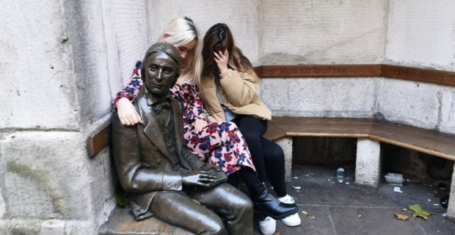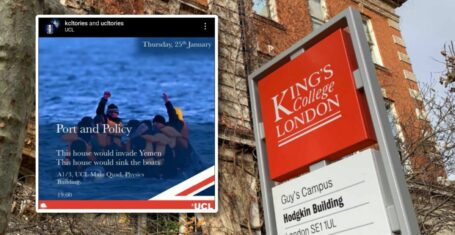
All about London Classicists of Colour, a society working towards decolonising Classics
‘We need more POC in classics, more POC-centered narratives, and more study of POC in the ancient world’
Classics is often thought of as being one of the most diverse and flexible courses one can study at university. One group of student classicists, however, are aiming to bring the lack of diversity within Classics departments and within the course content itself to the forefront of discussion. The King’s Tab spoke to London Classicists of Colour, a student society with members across the University of London who are “committed to the decolonisation of the study of Classics.” Here’s what they have to say about their cause:
What does the society aim to achieve?
Asyia Iftikhar, Treasurer at London Classicists of Colour, says that the society has two main goals, namely, “a strong commitment to the decolonisation of the curriculum, and the education of students in the relationship between Classics and Race and creation of a safe space for students of colour.”
“The structure and makeup of Classics as a study is very much still chained in by its 18th/19th-century origins, which is also connected to Western imperialism and Eurocentrism. Now is the time to create a space that acknowledges these problematic foundations and facilitates the discussion of approaches to ‘decolonise’ Classics,” she says.
What are the biggest issues within Classics right now, and what needs to be improved?
“We believe that the study of classics has been weaponised throughout history as a tool of imperialism, fascism, colonialism, and oppression, issues that affect people of colour or POC communities the most,” says Mai Sanadhya, Media and Communications Officer at the society. She added: “Many POC voices have been lost within the field, and we need to reclaim these voices and amplify them so that the field of classics grows to be more diverse and representative of all walks of life.”
She also elaborated on what the society means by ‘decolonising Classics’: “Decolonisation is about incorporating multiple narratives, not only as supplements to the white male voice but equal to it, so that we can paint a more representative picture of the past. To start, we need more POC in Classics, more POC-centered narratives, and more study of POC in the ancient world.”

What role can universities play?
Natasha Rao, Academic Events Officer at the society, says that universities can contribute by “actively engaging with decolonisation efforts, and listening to their students. Too often, the burden of these issues falls on minority and POC students.”
“We want Classics departments to be actively reviewing their own curricula and thinking about how to expand these beyond Greco-Roman antiquity. Universities should also be actively engaging in diversity efforts– not only making Classics more accessible to BAME students who haven’t often had the opportunity to study Greek or Latin but also increasing diversity within the faculty and within the scholarships provided to students,” she added.
What can students, especially those in the department of Classics, do to tackle these issues?
The society believes that movements towards a more inclusive academic future are too often almost always student-led. “These students also tend to come from BAME and/or other marginalised backgrounds. We would like to encourage non-BAME students to uplift and support these marginalised voices,” said Marley Bell, Social Events Officer at the society.
She further added: “I feel like a common misconception is that white students who want to be allies in decolonising the curriculum have to ‘take a backseat’ in causes like this so as to not overshadow a BAME initiative. But allyship can definitely strike a balance between active support and using privilege to amplify minority voices.”
What does the society have planned for the future?
Reyna Jani, Welfare Officer at the society says that since they’re “such a new society,” the events they’ve held so far are “only the beginning of a long list of new things to come– Academic, Social, and Pastoral.” She went on to add: “One of our more prominent ideas is to extend our network and work with academics across the UK to create a mentorship scheme for POC academics! Inspired by the Asian and Asian-American Caucus, this will be a rather large project, and we’re excited to grow our team in the future and build a strong support system between academics of colour.”
All members of the society are extremely hopeful for the future. Asia Choudhry, President of the society, says: “It is true that there is an enormous amount of work to do, and that it will take engagement from across the world to re-centre and reframe how Classics is perceived and how it is taught. However, we are confident in ourselves, our members, and our society, and are certain that we have taken the first of many steps in the right direction.”
“The conversations that are being had about Classics right now are enabling us to ask the right questions, and most importantly, affect positive change,” she concluded.
To learn more about London Classicists of Colour, you can find them on Twitter, Instagram, and Facebook. Check out their website to find out more about the society’s aims and future events.
Related stories recommended by this writer:
• HESA data reveals that only 1.6% of King’s academic staff are Black
• Five activism Instas run by King’s students that you need to be following
• ‘Where are you really from?’: Mixed race students on their experiences at King’s









































